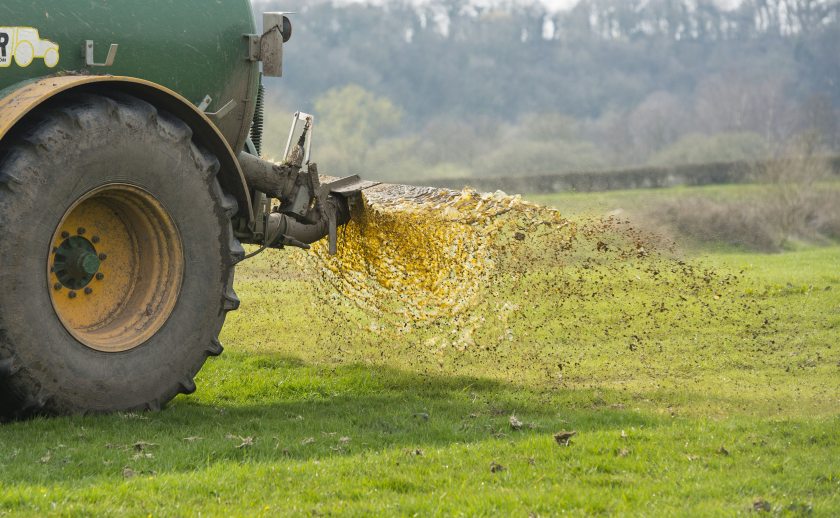
Northern Irish farmers have been told to act with extra caution after the open slurry period commenced on 1 February.
The open period for spreading slurry started on Monday, and the Ulster Farmers’ Union (UFU) has warned farmers to ensure they are abiding by all guidelines.
After snow and heavy rainfall last week, many areas across the region will not be suitable for slurry spreading, the union said.
The introduction of the new Nutrients Action Programme (NAP) in 2020 brought with it various changes to spreading.
For the month of February, buffer zones will increase and the maximum amount of slurry that can be applied at any one time is reduced to lower the risk of contamination to waterways.
Buffer zones will increase to 30m from lakes and 15m from any other waterways, but they can be reduced to 5m if low emission slurry spreading equipment (LESSE) is used and certain conditions are met.
The maximum slurry rate is reduced to 30m3 per hectare for each application (2700 gallons/acre).
The UFU has issued guidance: "From 1 February, slurry contractors must use LESSE. A slurry contractor is defined as a person who receives payment for spreading slurry where they do not claim Basic Payment Scheme on the land
"It is now a legal offence for a slurry contractor to use a slurry tanker with splash plates for spreading slurry on most land after this date.
The UFU is also reminding farmers that the deadline to submit records of slurry and all other organic manures exported from farms during 2020 is now 1 March 2021.
"Any farm exporting slurry, chicken litter or manure to another farm must submit this information online to the Northern Ireland Environment Agency.
"The NAP rules are part of cross compliance and failure to comply could result in penalties being applied to a farmer’s area payment," the union said.
